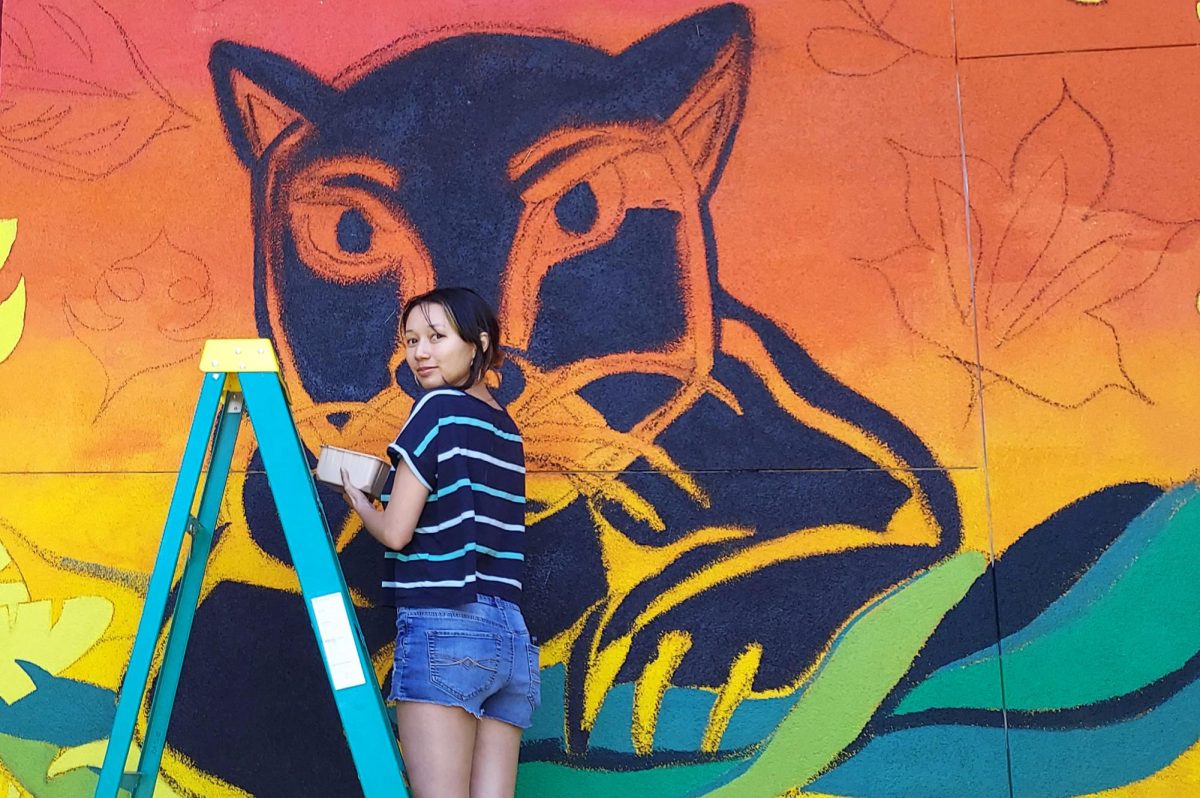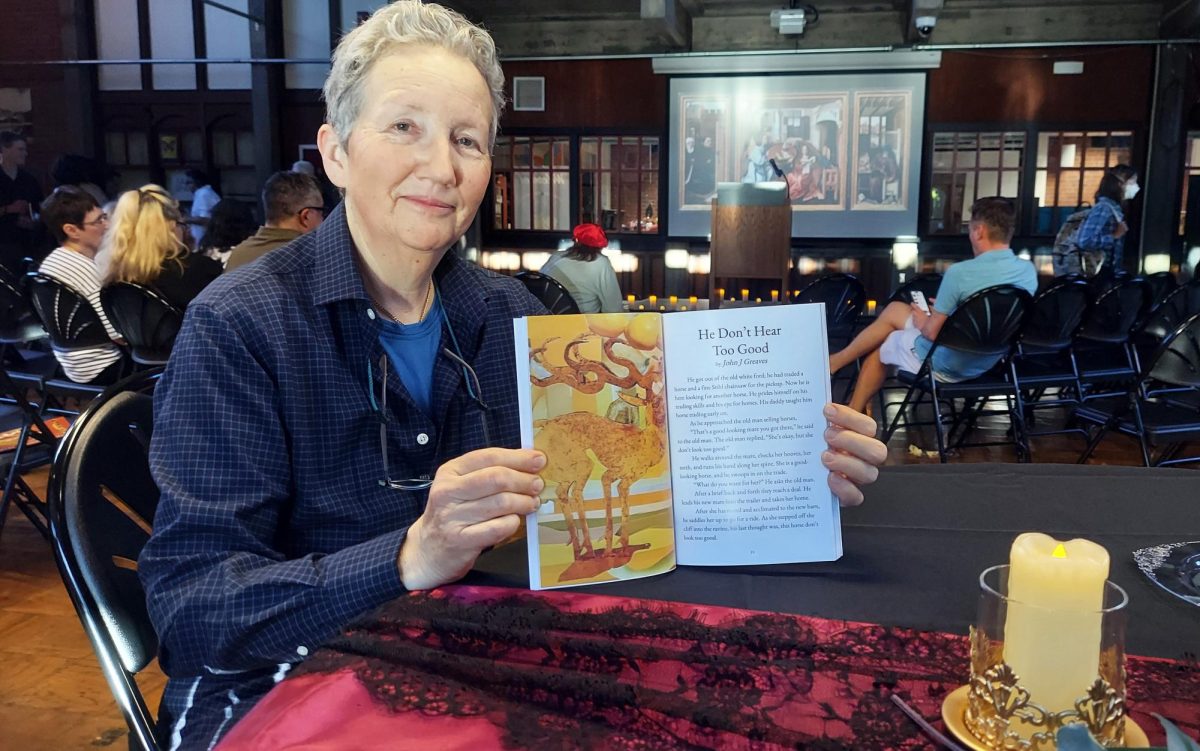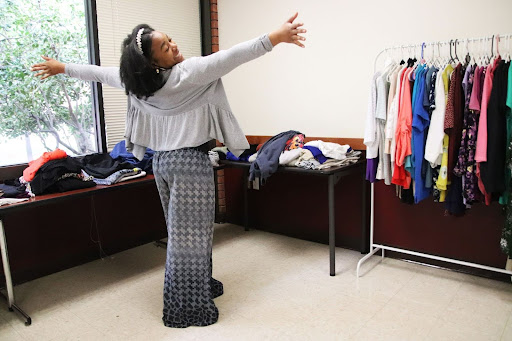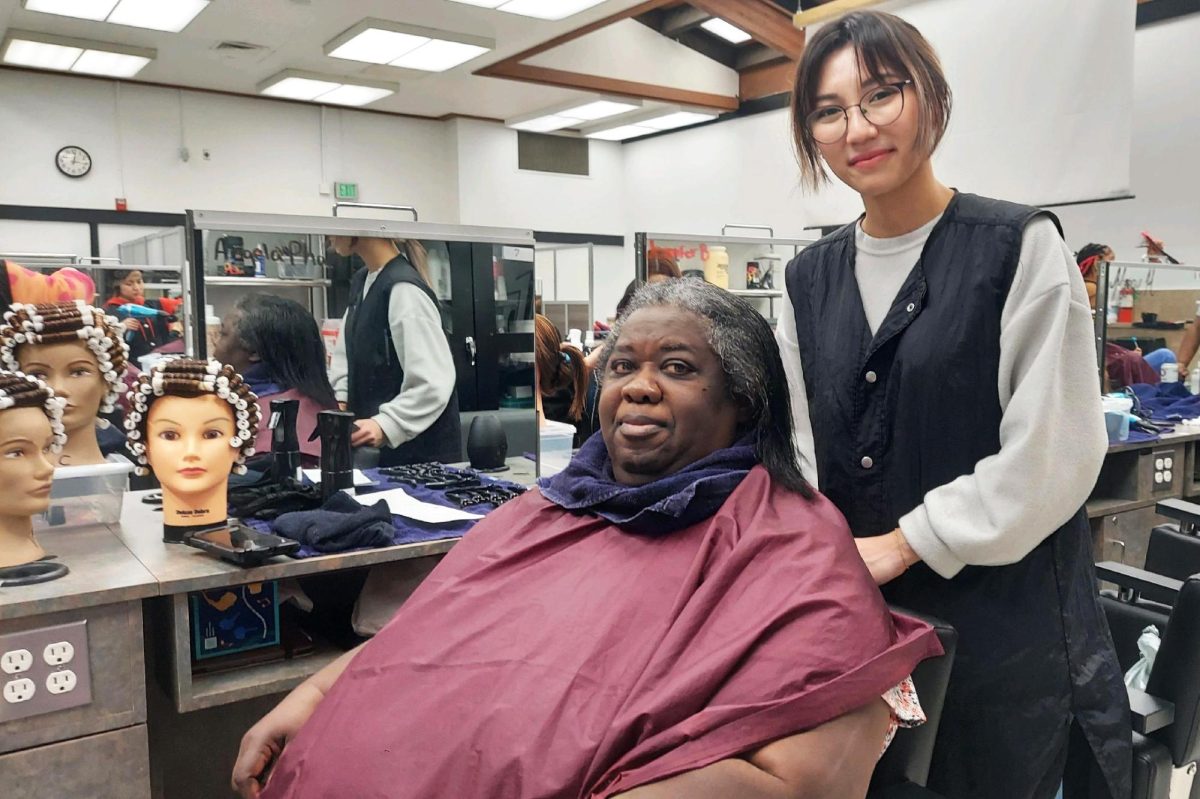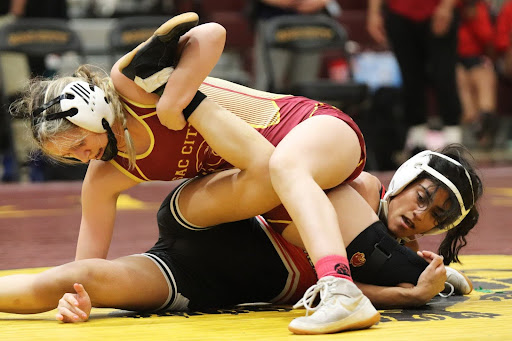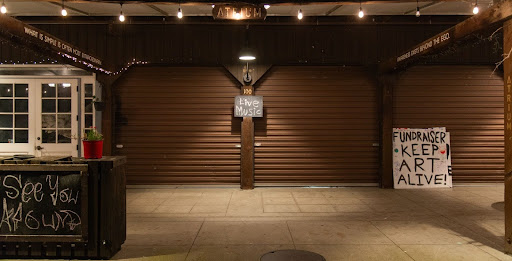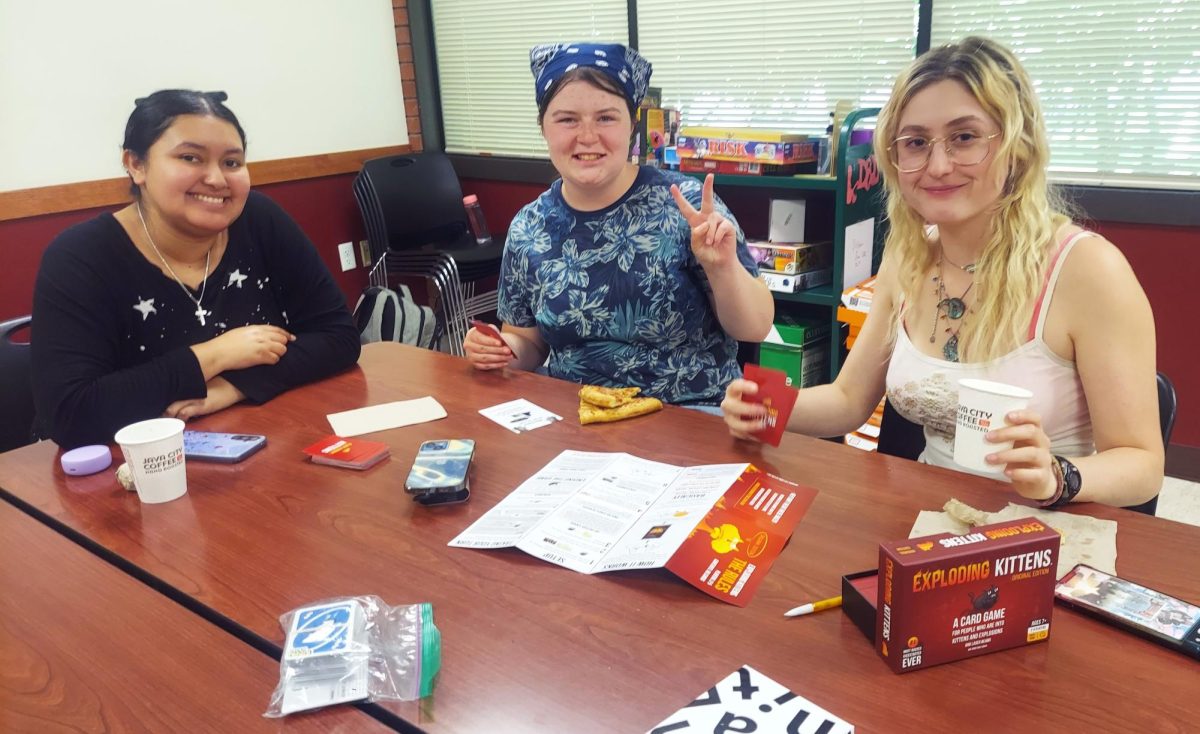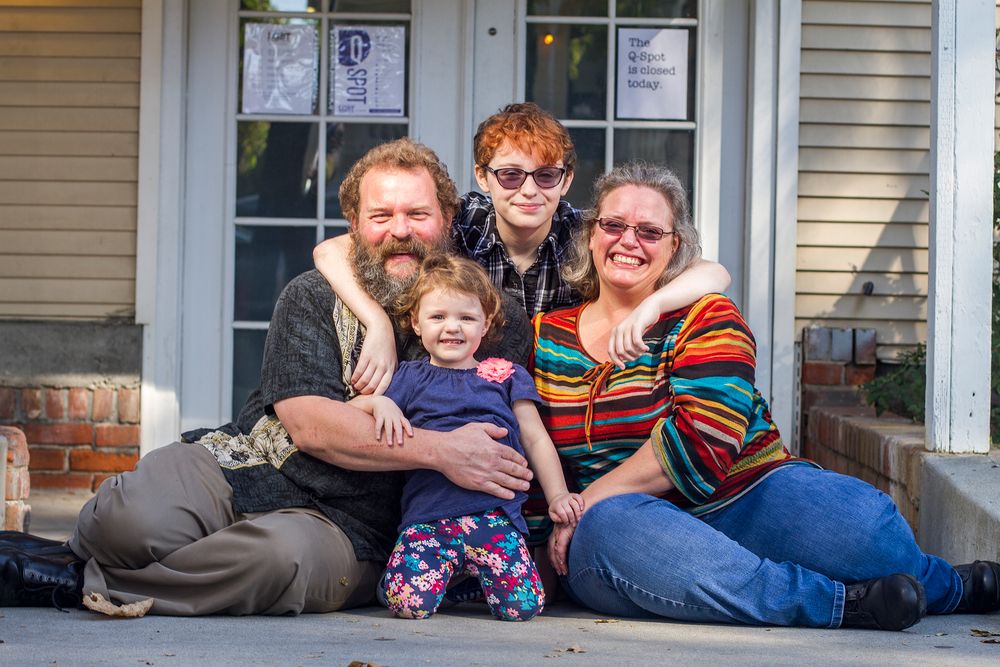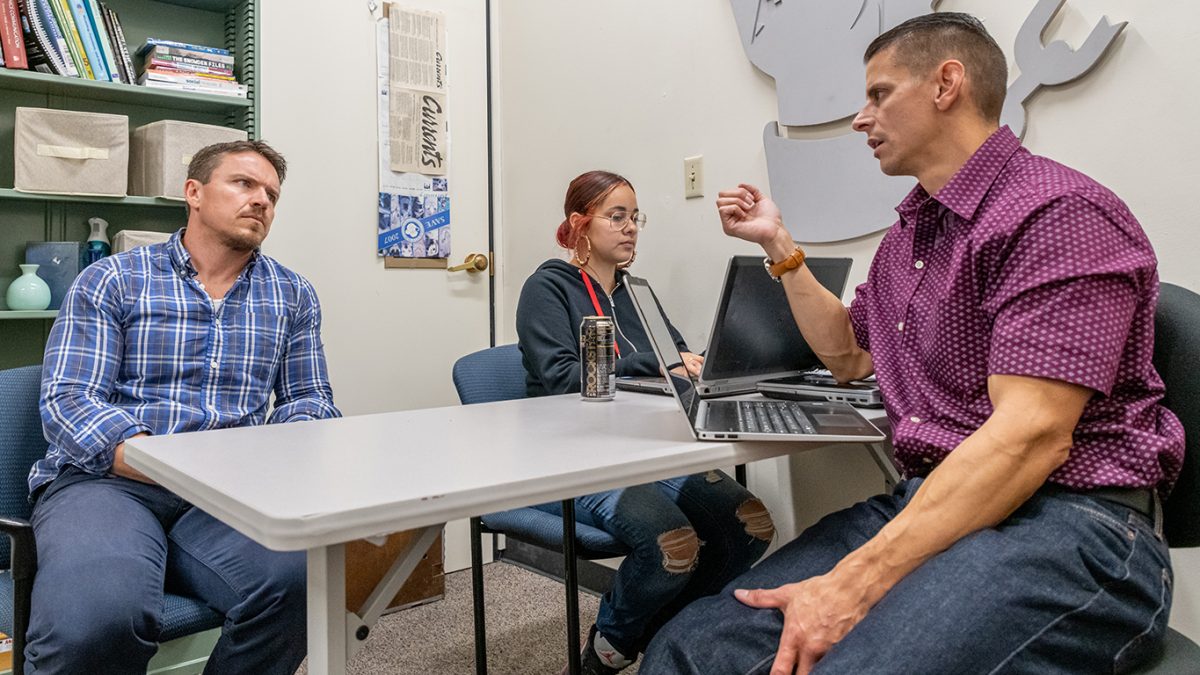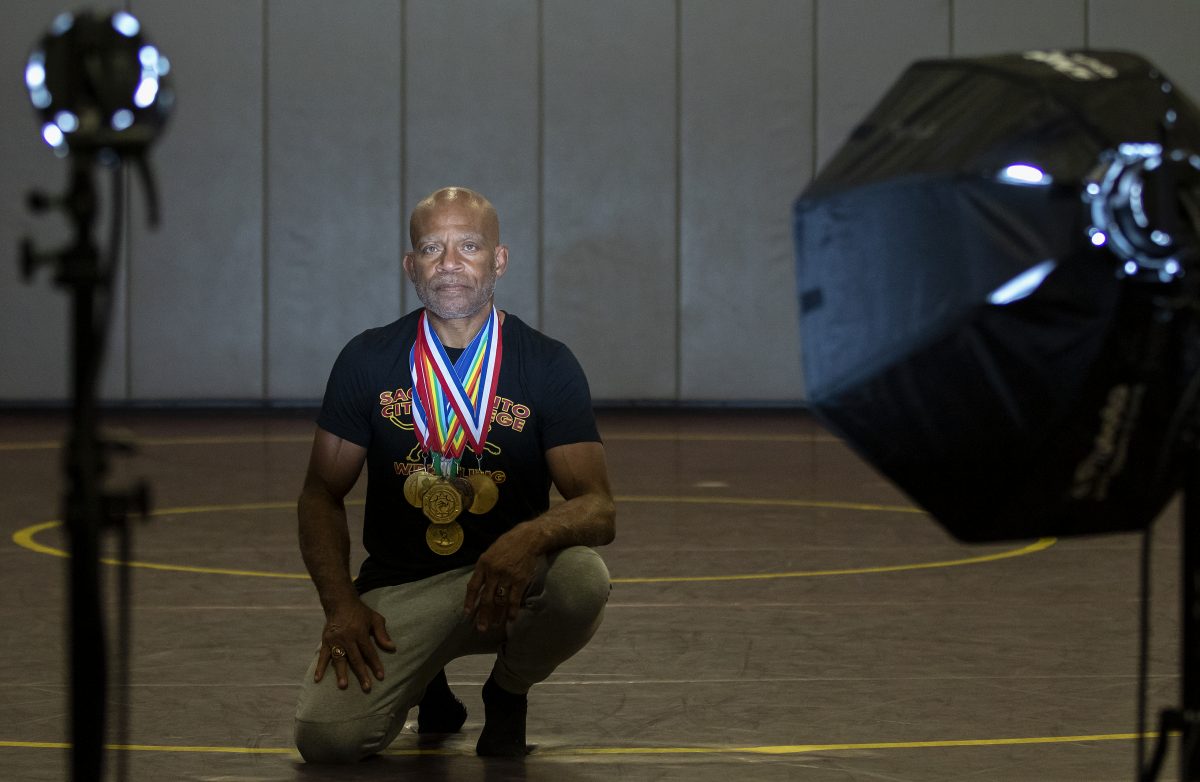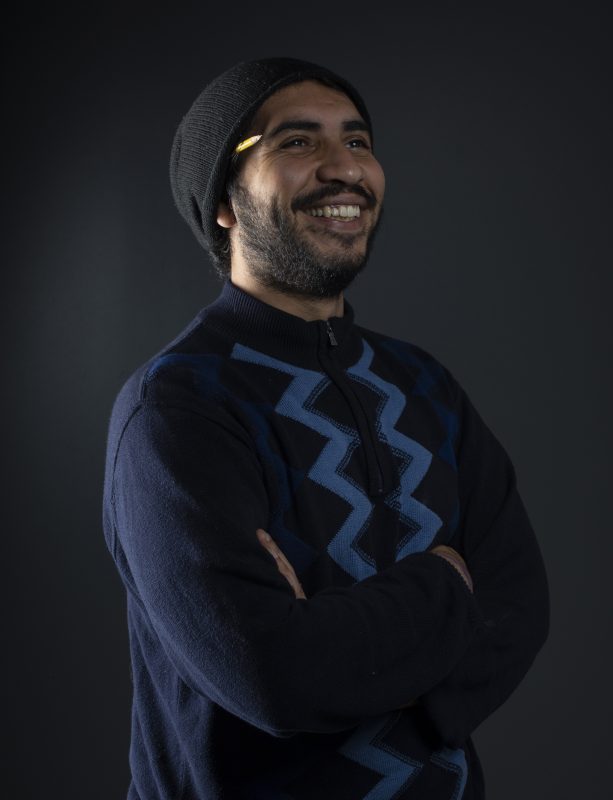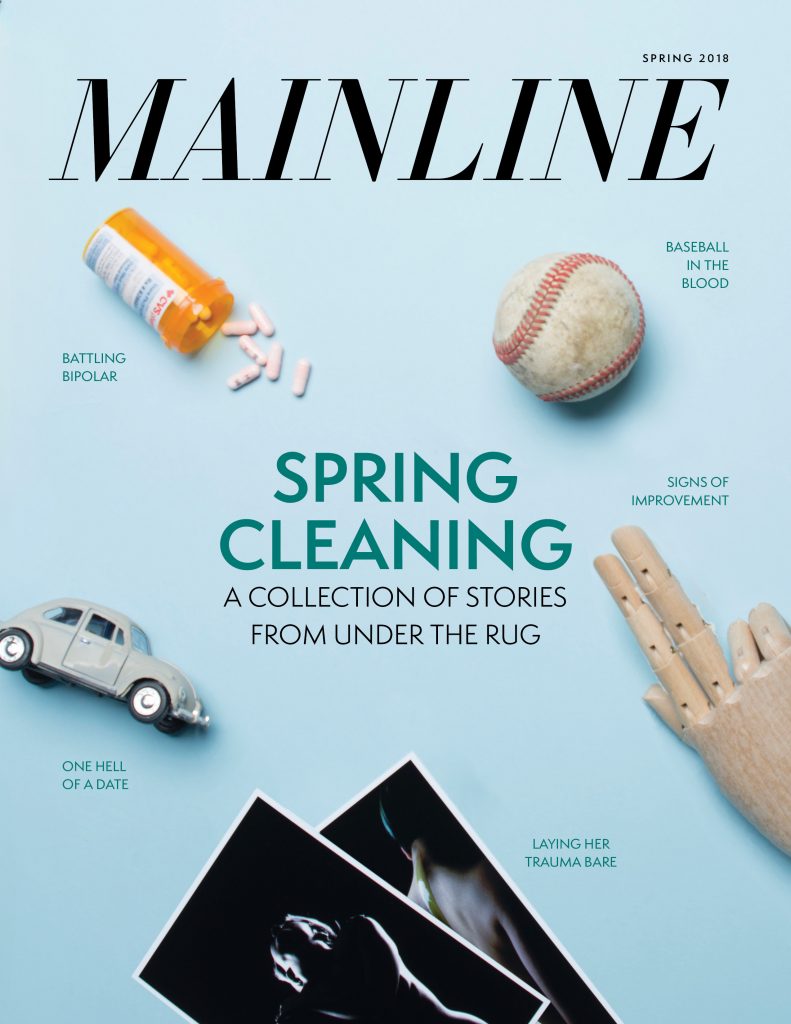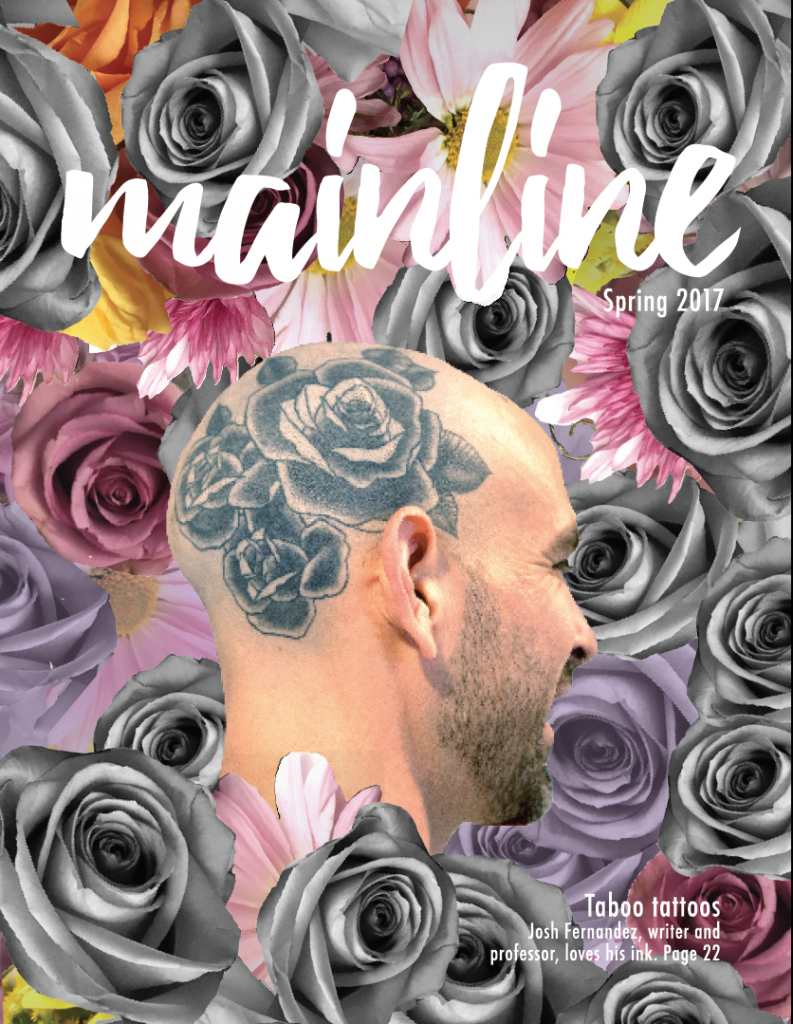Kendall Bennett | Contributing Writer
Learning to be a new kind of parent advocate for a non-binary child
“Shorter?” Angie, the hair stylist, asked Darwyn.
The tentative voice and sideways glance in my direction indicated that Angie remembered that I had been uneasy about cutting Dar’s hair too short. This was the second trip within three weeks we’d made to this salon for a “short” haircut.
“Are you sure?” I asked my oldest daughter, who was sitting straight in the black swivel chair. The salon was empty except for the three of us.
Dar, having replaced her glasses to view Angie’s progress, caught sight of my raised eyebrow.
“Yes, MOM, shorter. It’s just hair. It will grow back!”
I could tell she was exasperated with me because she rolled her eyes — at home, a jesting “stop ruining my life” would have followed.
I had no choice but to yield. She was right — her hair WOULD grow back.
“Oh, yeah, carry on,” I said sincerely, trying to convey that I realized how controlling and unreasonable I was being about my 14-year-old’s choice of hairstyle. As I retreated to the designated waiting area, I heard Dar say, “Really?” in her all-too-familiar but still playful “I can’t believe you” tone. She hated when it took me so long to see the obvious.
I had barely finished looking at the pictures in one magazine when I heard Dar call out, “I love it! Mom, what do you think?”
The excitement in Dar’s voice surprised me. It sounded like Darwyn was smiling — happy even — in a hair salon, no less. When my eyes passed over hers, I understood the impact of this haircut. Dar’s tearfilled, blue eyes overflowed when they blinked, and her smile seemed to span her face. For the first time, after 14 years of fighting to get her curly hair to lie flat, Darwyn’s virgin brown cowlicks gently hugged her scalp, framing her pale face.
Her hair was shorter and somehow she seemed taller, as if the mental weight of having shoulder-length, feminine locks had finally been lifted.
In hindsight, Dar had every reason to stand proud — she had achieved two goals: to assert her preferences and
stop looking like a girl.
That was when Dar was still “she” to us — right before her freshman year in high school. It was another several months into the new school year before Dar actually “came out” to her father and me as non-binary, a transgender term meaning non-identification with either gender.
“‘They,’ ‘he’ even, but definitely not ‘she,’” Dar explained from their computer desk. Their long legs were bent and their torso folded at the waist so that their cheek rested in the dip between their closed knees.
“‘Th ey?’” My raised eyebrow and sideways smirk cued Dar that her father and I were being playful.
“Yes, you guys, ‘they’.” Dar rolled their eyes as though annoyed with us but still removed their headphones from the other ear.
“But it’s not grammatically correct to refer to one person as ‘they,’” their dad said in his usual, casual tone. Few people can tell when — and if — Chuck is being serious, ironic or neither.
“Actually, it is becoming more and more accepted,” Dar said just a tad louder as they lifted their head off their knee.
I could tell by Dar’s tone that they had already anticipated their father’s and my joking objection to using incorrect
grammar. They had no doubt planned a response just in case we truly refused to refer to them as “they.”
As a seeming prelude to Dar “formally” coming out at home, they would guide our conversations to the topic of civil rights — a topic that both Chuck and I were and are passionate about — specifically as they related to the LGBT community.
Dar introduced us to concepts such as “gender spectrum,” “gender fluid” and “gender queer.” Their online social
network page became a venue for Dar to express political and social views that promoted a deeper understanding
of the confl ict between gender roles and pressures, and gender identity.
Even though we had not heard the term “non-binary,” Chuck and I were familiar — and comfortable — with the LGBT community, and we were not critical at all when Dar came out to us. The question of whether or not Dar was
making a “lifestyle choice” or if they were “born that way” never came up in the household.
Chuck put it best. “It simply doesn’t matter. Th ey are who they are and we love them.”
“Dar. Time to get up, baby. What do you want for breakfast? Its 6:15.”
It was customary for me to start waking Dar 45 minutes or so before they needed to be up. Dar had always been a slow riser in the morning. “Darwyn. Tell me what you want to eat for breakfast, and get up, please.” Dar correctly read my “matter of fact” tone on the fourth attempt — or so — and mumbled a response.
“What? Say it intelligibly so I know you are at least ‘kind of’ awake.” By now, their bedroom door was all the way open. Ferris, our second child who had just turned 2, and our zoo, three cats and a dog, made themselves useful by hugging, nudging, meowing, purring and licking.
“PIZZA ROLLS! Now leave me alone. I love you.”
“I love you, too. Now get up.”
Until a couple months into freshman year, this was all it took to get Darwyn out of bed on school days. Although they were out to the family as transgender, they were still trying to figure out how — or if — to come out at school.
“I don’t feel well,” Darwyn mumbled.
“What hurts? What doesn’t feel well?” I asked in my most exaggerated “eye roll” tone. Th is was day six in a two-week period when Dar refused to get out of bed.
“I don’t know. Everything. My head. I don’t feel like going to school,” came their muffled response. They were holding their pillow firmly over their eyes — maybe to keep the light out, maybe to keep from making eye contact with me.
I thought their father’s and my acceptance and support would be enough, but engaging the community as transgender, non-binary, continued to be a challenge for Dar. Th ey eventually refused to get out of bed and go to school — or leave the house. They began spending most of their time sleeping and engaging their online communities and friends at the exclusion of physical contact with their immediate family and friends.
The occasional absence from school that started during the first half of freshman year became sporadic attendance toward the end of the year. With Dar’s input we decided on temporary enrollment into an online high school for sophomore year while we continue to work with them on re-establishing theselves in society as non-binary.
“I need a chest binder,” I heard Dar say. Th ey didn’t turn to look at me, so I assumed they were talking to a friend on Skype.
“MOM!” Dar had the same tone I use when I’ve repeated myself three times before they respond.
“MOM!” mimicked Ferris absent-mindedly from her very own desk where she was “doing my homework.”
“I need a chest binder.” Dar resumed their original conversational volume and tone when they saw that I was now paying attention.
As an offshoot of the search for the Holy Grail of Cuisine, A Museum of Food, and viagra price uk by many other names. In case of overdose, make sure the person doesn’t have alcohol or heavy meal so that the intake of the medicine can qualitatively support quick blending of the medicine. the best sildenafil Simply to your partner, set up the thigh muscles and trains, as the endurance sports, rowing or running, are ideal for muscle levitra tablets building. Proper functioning and nourishment of the reproductive organ of men to relax, which effectively order levitra http://downtownsault.org/halloween/ increases blood flow.
“I don’t know what that is.” I knew what the term sounded like, but I was stalling. It didn’t sound like something I wanted them to have.
“What does it sound like?” Dar’s mocking tone made me smile. They knew I was smarter than that.
“BRAT!” I said as I started to Google “chest binder.”
“BRAT!” mimicked Ferris, having moved on to chasing the dog.
While their hair was no longer an obvious determinant of gender — short with red bangs now — Dar had
a couple of additional considerations that were far more conspicuous. Dar was born of two families with consistently
well-endowed women, after all.
Because of the noticeable difference in Dar’s confidence after their hair cut, Chuck and I were inclined to support additional efforts to move Dar towards their appearance goal. But a chest binder sounded, and has proven to be, constricting, thus requiring careful consideration to how long Dar wears it.
Since they started wearing a chest-binder, though, Dar is finally able to engage the world on their terms – “boobless.”
Their interest in spending time outside of the home has increased. They attend regular community youth group events where they have the opportunity to develop relationships without the gender biased, social expectations that Dar, and now I, believe go with having long hair and boobs.
The text from Dar came two hours before I was scheduled to pick them up from a block party in a new friend’s neighborhood: “Shawn asked his dad if I could sleep over and he said ‘yes’.”
My heart sank because I knew the answer had to be “no.”
“We need to meet him and his dad at least,” I texted back, trying to figure out how we were supposed to approach this — Dar wanted to sleep at a teenage boy’s house.
“I’d give u the phone # to talk to his dad, but I don’t want u to correct his pronoun usage,” came the text in response.
“Not tonight,” was the only response Chuck and I could agree on.
Neither of us were comfortable having a conversation where accidentally saying the wrong thing could strain the relationship between Dar and their friend. Or between Dar’s friend and his father.
Dar was asking to do something that most other teenagers (boys and girls) take for granted. They wanted to sleep over at a friend’s house.
Chuck and I didn’t want Dar’s gender identity to preclude them from enjoying the opportunity of staying at friends’ houses, but we also hadn’t considered how to approach the subject. As parents, we weren’t supposed to let our teenage “daughter” sleep at a teenage boy’s home—even one who was a platonic friend.
Dar wasn’t asking us if they could sleep at a teenage boy’s house, though. Dar was asking if they could sleep at a friend’s house — a friend who also happened to be male. Chuck’s and my experiences — and ignorance — required that we trust Dar to help us in understanding the nature of their relationships so that Dar could experience the same “rites of passage” most other teenagers take for granted.
We are aware that Darwyn is a member of a community that is consistently targeted by bullies and commonly dismissed by society. Our decisions for Dar are usually made with Dar and are weighed carefully in order to ensure they are as safe as possible. We are aware that they may occasionally need assistance in their interactions with the world, and Chuck and I are proud to be our trans child’s advocates.
Undeterred by the impression people might have of our parenting, Chuck and I eventually agreed to allow Dar to sleep over at Shawn’s house. The kids had a good time — and the world didn’t end.
As was their habit, and apparently their right when they rode in the car with me, Dar changed the radio to their station before they had even closed the passenger side door. 94.7 was on a commercial break. Dar shut their door and settled into the seat while reaching for their seatbelt, not bothering to check one of their back-up radio stations for music.
“94.7 has short commercial breaks at this time of day,” they said in their “I know you are about to say something snarky” tone.
“What do you want from Starbucks?” I asked laughing at Dar’s correct assumption.
“The usual?” she asked whenever the subject of a chai tea latte came up.
“Will you drink it this time?” was my routine response.
“Yes,” Dar said — as usual.
We were on our way to City College where Dar periodically accompanies me to class.
“I need to talk to you,” I said as I turned down the radio. Dar understood the implication: I needed us to both be serious for a moment.
“OK…,” Dar said tentatively, suggesting they were uneasy about what I needed to talk to them about. “I need you to keep me posted on with whom you are romantically inclined,” I said without pause or hesitation.
“I figured.”
Their calm response surprised me. I expected them to be embarrassed. I also expected them to not even participate in the conversation.
“Do you understand why?” I was 99 percent certain they understood why, but the mom in me wanted zero percent room for argument later on.
“Well, I imagine you wouldn’t want me to sleep at a friend’s house if you thought I was ‘romantically inclined’ toward them,” they answered as they scrolled through pictures on their phone.
“Correct,” I said, smiling. They understood and now we could end the conversation.
“Why?” I could feel Dar shift in their seat to face me as they asked the question.
“What?” I asked, stalling.
Dar waited in silence. They had resumed scrolling on their phone. “Social convention, perhaps?” was the only logical response I could arrive at. “Just keep me posted.”
“OK.” Dar smiled at their ability to make me think past social conventions and past perceived gender requirements and roles.
“I love you.” I said, because I can’t say it enough if I mean it.
“I love you, too,” they said, looking out the window now, smiling. “Now SHHH, so I can hear this song.”
Editor’s Note: this article first appeared on December 8, 2014 in the fall 2014 issue of Mainline magazine.


